九年级英语9ABU9_T72_3a-2
- 格式:ppt
- 大小:50.00 KB
- 文档页数:7
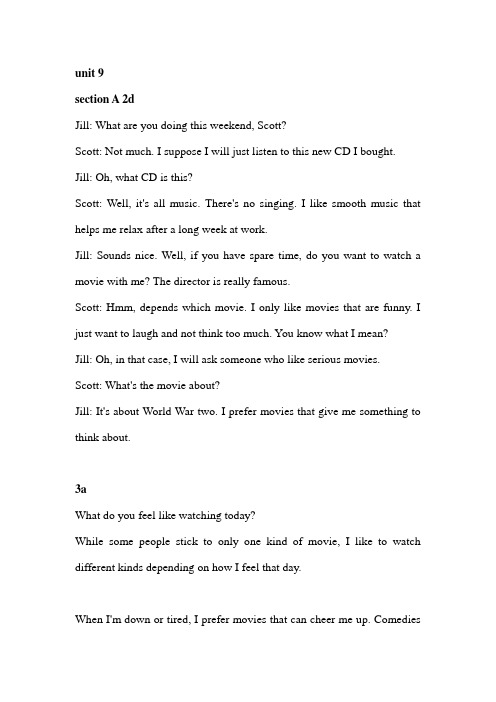
unit 9section A 2dJill: What are you doing this weekend, Scott?Scott: Not much. I suppose I will just listen to this new CD I bought. Jill: Oh, what CD is this?Scott: Well, it's all music. There's no singing. I like smooth music that helps me relax after a long week at work.Jill: Sounds nice. Well, if you have spare time, do you want to watch a movie with me? The director is really famous.Scott: Hmm, depends which movie. I only like movies that are funny. I just want to laugh and not think too much. You know what I mean?Jill: Oh, in that case, I will ask someone who like serious movies. Scott: What's the movie about?Jill: It's about World War two. I prefer movies that give me something to think about.3aWhat do you feel like watching today?While some people stick to only one kind of movie, I like to watch different kinds depending on how I feel that day.When I'm down or tired, I prefer movies that can cheer me up. Comedieslike Men in Black or cartoons like Kung Fu Panda have funny dialogs and usually have a happy ending. The characters may not be perfect, but they try their best to solve their problems. After watching them, the problems suddenly seem less serious and I feel much better again. Laughing for two hours is a good way to relax.I don't want dramas of documentaries when I'm sad or tired. Dramas like Titanic make me feel even sadder. Documentaries like March of the Penguins, which provide plenty of Information about a certain subject can be interesting, but when I'm tired, I don't want to think too much. I don't mind action movies like Spider-Man when I'm too tired to think. I can just shut off my brain, sit back and enjoy watching an exciting superhero who always saves the world just in time.Once in a while, I like to watch movies that are scary. They can be fine, but I'm too scared to watch them alone. I always bring a friend who isn't afraid of these kinds of movies, and it doesn't feel so scary anymore.section B 2bRead the passage and answer to questions.1. Which musician does the passage mainly talk about.2. What is the name of his most famous piece of music?3. How does the writer feel about this piece of music?Sad but beautifulLast night one of my Chinese friends took me to a concert of Chinese folk music. The piece which was played on the erhu especially moved me. The music was strangely beautiful, but under the beauty I sensed a strong sadness and pain. The peers had a simple name,Erquan Yingyue (Moon Reflected on Sencond Spring), but it was one of the most moving pieces of music that I've ever heard. The erhu sounded so sad that I almost cried along with it as I listened. Later I looked up the history of Erquan Yingyue and I began to understand the sadness in the music.The music was written by Abing, a folk musician who was born in the city of Wuxi in 1893. His mother died when he was very young. Abing's Father taught him to play many musical instruments, such as the drums, dizi and erhu, and by age 17, Abing was known for his musical ability. However, after his father died, Abing's life grew worse. He was very poor. Not only that, he developed a serious illness and became blind. For several years, he had no home. He lived on the streets and played music to make money. Even after Abing got married and had a home again, he continued to sing and play on the streets. He performed in this way for many years.Abing's amazing musical skills made him very popular during his lifetime. By the end of his life, he could play over 600 pieces of music. Many of these were written by Abing himself. It is a pity that only six pieces of music in total were recorded for the future world to hear, but his popularity continues to this day. Today, Abing's Erquan Yingyue is a piece which all the great erhu masters play and praise. It has become one of China's national treasures. It's sad beauty not only paints a picture of Abing's own life but also makes people recall their deepest wounds from their own sad or painful experiences.。

人教新目标英语九年级单词表(Unit 9全一册)人教新目标英语九年级单词表(Unit 9全一册)UNIT 9invent 发明calculator 计算器be used for 用来做……scoop 勺子adjustable 可调整的heel 后跟battery 电池operate 操作battery-operated 电池供电的slipper 拖鞋heat 加热bulb 电灯light bulb 电灯泡microwave 微波microwave oven 微波炉crispy 脆的salty 咸的sour 酸的by mistake 错误地chef 厨师sprinkle 撒by accident 偶然地beverage 饮料according to 根据ancient 古代的legend 传说Shen Nong 神农bush 灌木fall into 落入remain 留下notice 注意到produce 生产pleasant 合意的mixture 混合in this way 这样pie 馅饼flying disk飞碟bakery 面包店Bridgeport 布里奇波特Connecticutthrow 投taste 味道lemon 柠檬cookie 小甜饼abacus 算盘binoculars 双筒望远镜century 世纪;百年rank 顺序active 活动的indoors 在户内create 创造wooden 木制的knock 敲knock into 与……相撞divide 分开aim 目标basket 篮metal 金属hoop 环shot 投篮below 在……的下面backboard 篮板guide 指导towards 向着court 球场Berlin 柏林develop 发展popularity 普及;流行risenworldwide 世界性的association 协会equipment 装备Chelsea Lanmon 切尔西・来蒙Jayce Coziar 杰斯・克里亚Jamie Ellsworth 杰米・埃尔斯沃思Julie Thompson 朱莉・汤普森Crum 克拉姆James Naismith 詹姆斯・奈史密斯。

初中英语九年级第九课2b部分The 2B section of the 9th lesson in 9th grade junior high school English textbook covers various aspects of language learning. In this article, we will delve into the significant topics and concepts in this section and explore different ways to enhance English proficiency.Reading SkillsThe 2B section focuses on improving reading skills through various exercises and passages. One effective strategy to enhance reading comprehension is to actively engage with the text. This involves analyzing the text structure, identifying key ideas, and making connections between different parts of the text. Additionally, practicing skimming and scanning techniques can help students locate specific information quickly.Vocabulary ExpansionTo improve vocabulary, it is essential to go beyond memorizing isolated words. Students should learn new words in context, understanding their meanings and usage in sentences. Reading extensively, both in textbooks and other authentic materials, is a great way to encounter new words and reinforce their understanding. Students can also create flashcards or use online resources to practice vocabulary regularly.Grammar DevelopmentGrammar plays a vital role in language proficiency. The 2B section introduces and reinforces several important grammar points, such as verb tenses, modal verbs, and reported speech. Understanding and practicingthese grammar rules will enable students to express themselves accurately and clearly. Engaging in grammar exercises, like completing sentence transformations or writing dialogues, will help solidify their grasp of these concepts.Listening ComprehensionListening comprehension is key to effective communication. In the 2B section, students are exposed to various listening materials such as dialogues, monologues, and interviews. Active listening involves paying attention to both the main ideas and specific details. Students can improve their listening skills by engaging in regular listening practice, such as watching English movies or TV shows, listening to English podcasts, or participating in language exchange programs.Speaking and Writing PracticeThe 2B section also provides opportunities for students to practice their speaking and writing skills. To improve spoken English, students should engage in activities that promote oral communication, such as class discussions, role-plays, and presentations. These activities allow students to express their ideas confidently and fluently, while also improving pronunciation and sentence structure.When it comes to writing, it is crucial to develop both creativity and organization. Students should be encouraged to write regularly, using different genres such as narratives, descriptive essays, and argumentative essays. Feedback from teachers or peers can help identify areas of improvement and provide guidance for enhancing writing skills.Effective Study HabitsLastly, cultivating effective study habits is essential for mastering any subject, including English. Students should establish a consistent study routine, allocate dedicated time for English practice, and create a conducive learning environment. Utilizing various resources, such as textbooks, online platforms, and language learning apps, can further facilitate independent studying.In conclusion, the 2B section of the 9th grade junior high school English textbook covers a wide range of language learning skills. By incorporating the strategies mentioned above, students can enhance their reading, vocabulary, grammar, listening, speaking, and writing abilities. Developing effective study habits will contribute to a comprehensive English learning experience and foster long-term language proficiency.。
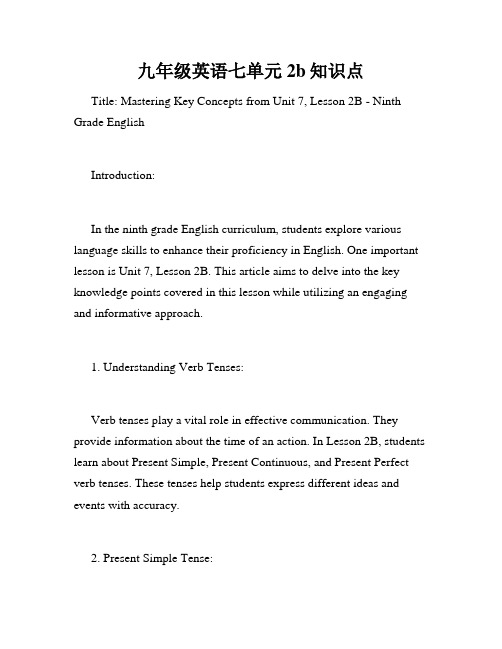
九年级英语七单元2b知识点Title: Mastering Key Concepts from Unit 7, Lesson 2B - Ninth Grade EnglishIntroduction:In the ninth grade English curriculum, students explore various language skills to enhance their proficiency in English. One important lesson is Unit 7, Lesson 2B. This article aims to delve into the key knowledge points covered in this lesson while utilizing an engaging and informative approach.1. Understanding Verb Tenses:Verb tenses play a vital role in effective communication. They provide information about the time of an action. In Lesson 2B, students learn about Present Simple, Present Continuous, and Present Perfect verb tenses. These tenses help students express different ideas and events with accuracy.2. Present Simple Tense:The Present Simple tense is used to describe general truths, habits, routines, and permanent situations. For example, "The sun rises in the east" or "I play tennis every Sunday." It is important to note that in the third person singular form, "s" or "es" is added to the verb (e.g., "He plays football").3. Present Continuous Tense:The Present Continuous tense is utilized to express actions happening at the time of speaking or actions planned for a definite future time. For example, "She is studying for her exam" or "We are going to the mall this evening." The structure of this tense involves the verb "to be" (am, is, are) followed by the present participle of the main verb (-ing form).4. Present Perfect Tense:The Present Perfect tense is used to connect the past and the present. It indicates actions that happened at an indefinite time in the past or have just been completed. For example, "I have visited New York three times" or "She has just finished her homework." The structure of thistense consists of the auxiliary verb "have/has" followed by the past participle of the main verb.5. Differentiating Verb Tenses:Understanding the differences between these verb tenses is crucial for precise communication. While the Present Simple and Present Continuous tenses describe current situations and habits, the Present Perfect tense focuses on past experiences with present relevance.6. Common Mistakes and Tips:Common errors in using verb tenses can hinder effective communication. Students often fall into the trap of using Present Continuous tense instead of Present Simple tense when talking about routines or habits. For example, saying "I am watching TV every day" instead of "I watch TV every day." Awareness of these pitfalls can help students avoid such mistakes.Additionally, in the Present Perfect tense, students sometimes struggle with choosing the correct auxiliary verb (have/has) and past participle form of the main verb. Practicing various exercises andseeking clarification from teachers can aid in overcoming these challenges.Conclusion:Unit 7, Lesson 2B of ninth grade English introduces students to essential verb tenses: Present Simple, Present Continuous, and Present Perfect. A strong grasp of these tenses allows students to express information accurately, convey habits, and describe past experiences with present relevance. By understanding the differences between these verb tenses and avoiding common mistakes, students can enhance their fluency and confidence in English communication.。

九年级下册英语九单元2b知识点Unit 9, Lesson 2B: Knowledge PointsIntroductionIn the ninth grade English curriculum, Unit 9 focuses on vocabulary and grammar related to transportation. Lesson 2B delves into various knowledge points in this unit, providing students with a deeper understanding of the subject matter. In this article, we will explore some important concepts and key takeaways from this lesson.Transportation Vocabulary1. Public TransportationPublic transportation refers to a system of vehicles that are available for use by the general public, typically operated on a regular schedule. This includes buses, trains, trams, and subways. Public transportation plays a crucial role in reducing traffic congestion, promoting environmental sustainability, and ensuring accessibility for all.2. Private TransportationPrivate transportation, on the other hand, refers to personal vehicles owned and operated by individuals. This includes cars, motorcycles,bicycles, and even walking. While private transportation offers convenience and flexibility, it also contributes to traffic congestion and air pollution.3. Sustainable TransportationSustainable transportation refers to modes of transport that have minimal impact on the environment and promote long-term ecological balance. Examples include electric vehicles, bicycles, and walking. Sustainable transportation aims to reduce carbon emissions and combat climate change.Transportation Trends and Challenges1. Urbanization and Traffic CongestionAs urban areas continue to expand, the demand for transportation increases. Rapid urbanization brings about the challenge of traffic congestion. This problem can be addressed through the expansion of public transportation systems, the promotion of carpooling, and the development of smart city initiatives.2. Alternative Fuels and Electric VehiclesWith the growing concern about environmental issues, there has been a push for alternative fuels and electric vehicles. Governments andcar manufacturers are investing in research and development to make these technologies accessible and affordable. The adoption of electric vehicles can significantly reduce greenhouse gas emissions and dependence on fossil fuels.3. Infrastructural DevelopmentTo accommodate the increasing volume of traffic, the development of transportation infrastructure is vital. This includes building and expanding roads, bridges, airports, and ports. It also involves investing in high-speed rail networks and updating public transportation systems. Such development requires significant funding and careful planning to ensure efficiency and sustainability.Grammar Points1. Comparative and Superlative AdjectivesComparative adjectives are used to compare two things, while superlative adjectives are used to compare more than two things. For example, "bigger" is a comparative adjective, and "biggest" is a superlative adjective. The structure is: adjective + "er" (comparative form) or "est" (superlative form).2. Adverbs of MannerAdverbs of manner describe how an action is performed. They often end in "-ly," such as "quickly," "happily," or "carefully." Adverbs of manner provide additional information about verbs and enhance the description of an action.ConclusionUnit 9, Lesson 2B of the ninth-grade English curriculum introduces students to a range of transportation-related vocabulary and grammar. Understanding the different modes of transportation, transportation trends, and challenges, as well as essential grammar points, will broaden students' knowledge and enable them to communicate effectively in various real-life situations. It is essential to recognize the significance of sustainable transportation and the importance of a well-developed transportation infrastructure in the context of modern society's needs.。
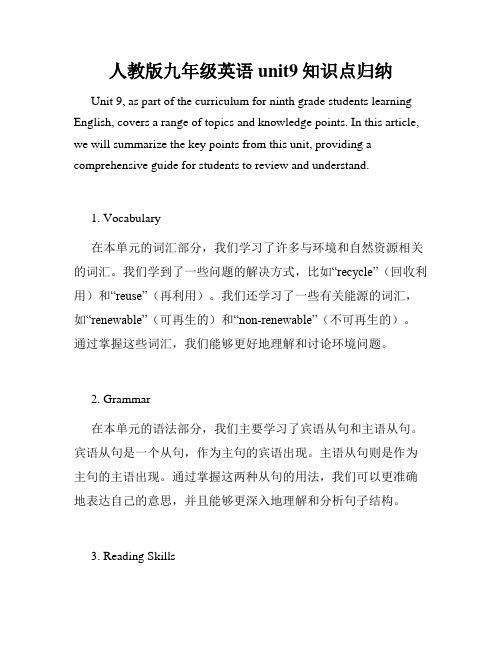
人教版九年级英语unit9知识点归纳Unit 9, as part of the curriculum for ninth grade students learning English, covers a range of topics and knowledge points. In this article, we will summarize the key points from this unit, providing a comprehensive guide for students to review and understand.1. Vocabulary在本单元的词汇部分,我们学习了许多与环境和自然资源相关的词汇。
我们学到了一些问题的解决方式,比如“recycle”(回收利用)和“reuse”(再利用)。
我们还学习了一些有关能源的词汇,如“renewable”(可再生的)和“non-renewable”(不可再生的)。
通过掌握这些词汇,我们能够更好地理解和讨论环境问题。
2. Grammar在本单元的语法部分,我们主要学习了宾语从句和主语从句。
宾语从句是一个从句,作为主句的宾语出现。
主语从句则是作为主句的主语出现。
通过掌握这两种从句的用法,我们可以更准确地表达自己的意思,并且能够更深入地理解和分析句子结构。
3. Reading Skills在阅读技巧方面,本单元重点讨论了如何提高阅读理解能力。
其中包括提前预测、寻找关键词和词组、注意过渡词、理解上下文等技巧。
这些技巧可以帮助我们更好地理解和分析文章,把握文章的主旨和细节。
4. Writing Skills在写作技巧方面,本单元教授了如何写一篇关于环境问题的文章。
我们学习了如何使用合适的词汇和句型来描述问题和提出解决方案。
我们还学习了如何组织文章结构和段落,使文章有逻辑性和连贯性。
5. Speaking and Listening在口语和听力方面,本单元的重点是环保问题和自然灾害。
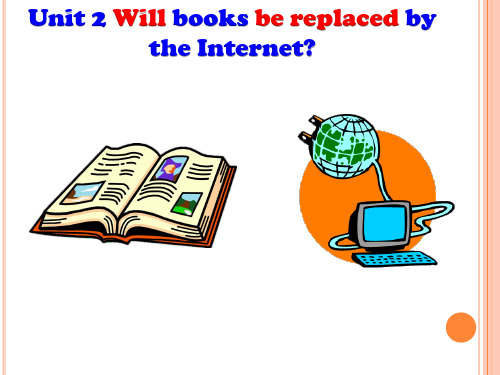
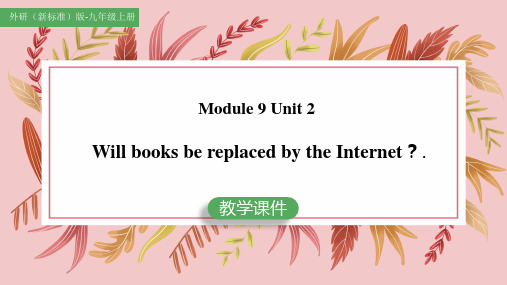

九年级全一册英语第九单元3a知识点英语作为一门全球性的语言,对于学生的学习和掌握至关重要。
九年级全一册英语第九单元3a知识点是学生在九年级学习的重要内容之一。
本文将对这一知识点进行深入的探讨和解析。
首先,我们来了解一下3a知识点的基本内容。
九年级全一册英语第九单元的3a知识点主要包括介词和介词短语的用法、重要的动词短语以及运用常用句型进行表达。
这些知识点在英语学习中具有重要的地位。
介词和介词短语是英语语法中的重要组成部分。
它们能够帮助我们表达时间、地点、方式等等。
在3a知识点中,有一些常见的介词和介词短语,比如:in front of、on the left、at the end of、by bus等等。
这些词汇的正确使用将会使我们的语言表达更加准确、流利。
接下来是重要的动词短语。
在英语中,动词短语是指由动词和副词、介词、形容词等组成的短语结构。
在3a知识点中,有一些重要的动词短语需要我们熟练掌握,比如:look up、turn left、get off、put on等等。
正确运用这些常用的动词短语可以使我们的语言更加地道、自然。
最后,我们来讨论一下运用常用句型进行表达的重要性。
在英语中,句型是指一组具有特定结构的句子。
在3a知识点中,有一些常用的句型需要我们灵活地运用,比如:What does it look like?、How do I get to…?、Can you tell me the way to…?等等。
掌握这些句型可以帮助我们更好地进行交流和表达意思。
然而,学习九年级全一册英语第九单元3a知识点并不是一蹴而就的过程,学生们需要付出大量的时间和精力。
在学习过程中,学生们可以通过课堂学习、课后习题、阅读英语文章以及与他人进行英语交流等方式来提高自己的语言能力。
此外,利用多媒体资源和参加英语角等活动也是提高英语水平的有效途径。
除了课堂学习之外,学生们还可以通过一些其他的途径来丰富自己的英语知识。
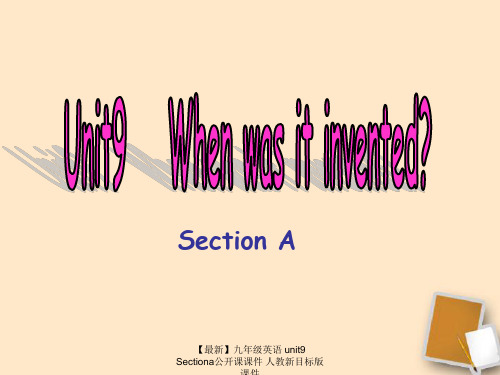

九年级英语unit92b知识点Unit 9.2B Knowledge Points in Ninth-Grade EnglishAs students enter ninth grade, they are introduced to a wide range of topics in their English curriculum. One of these topics is Unit 9.2B, which covers various knowledge points. In this article, we will explore the key concepts and skills students will acquire during this unit.Reading Comprehension TechniquesOne of the essential skills covered in Unit 9.2B is reading comprehension. Students learn various techniques to enhance their understanding of texts. These techniques include skimming and scanning, which help them quickly gather information from a passage. Additionally, they learn how to identify the main idea and supporting details of a text, making it easier to grasp the author's intended message. These skills are crucial not only for academic success but also for real-life situations where effective reading is required.Vocabulary ExpansionUnit 9.2B also focuses on expanding students' vocabulary. Vocabulary plays a vital role in language acquisition and effective communication. In this unit, students encounter new words and phrases,both in context and through explicit instruction. They learn different strategies like using context clues, word roots, and prefixes/suffixes to determine the meaning of unfamiliar words. Expanding their vocabulary not only improves their reading and writing skills but also strengthens their overall language proficiency.Grammar Review and ApplicationAnother aspect covered in Unit 9.2B is grammar review and application. Students revise and solidify their understanding of various grammar rules and concepts. They revisit topics such as verb tenses, sentence structure, subject-verb agreement, and the correct usage of pronouns and prepositions. Understanding and applying these grammar rules correctly is crucial for effective communication in both spoken and written English.Writing Skills DevelopmentUnit 9.2B also emphasizes the development of writing skills. Students learn different types of writing, including narrative, descriptive, persuasive, and expository writing. They are provided with guidance on how to plan, organize, and structure their ideas, ensuring coherence and clarity in their writing. Additionally, they learn how to incorporate relevant and engaging details, use appropriate transition words, and effectively revise and edit their work. Developing strongwriting skills equips students with a valuable tool for self-expression and effective communication.Critical Thinking and AnalysisUnit 9.2B encourages students to develop critical thinking and analysis skills. They learn how to analyze and evaluate different texts, including articles, essays, and literary works. They explore themes, characters, and literary techniques, engaging in higher-level thinking and interpretation. These skills enhance their understanding of complex texts and enable them to make connections, draw conclusions, and present well-supported arguments.Effective Presentation SkillsLastly, Unit 9.2B focuses on developing effective presentation skills. Students learn how to deliver an engaging and well-structured presentation on a given topic. They practice key skills such as maintaining eye contact, using appropriate body language, and employing visual aids effectively. Presentation skills are not only essential for academic success but also for future professional endeavors, making this knowledge point valuable beyond the English classroom.In conclusion, Unit 9.2B in the ninth-grade English curriculum covers a diverse range of knowledge points. From reading comprehension techniques and vocabulary expansion to grammar review and application, writing skills development, critical thinking, and effective presentation skills, this unit equips students with valuable tools for language acquisition, communication, and personal growth. Mastering these knowledge points will undoubtedly benefit students throughout their academic journey and beyond.。
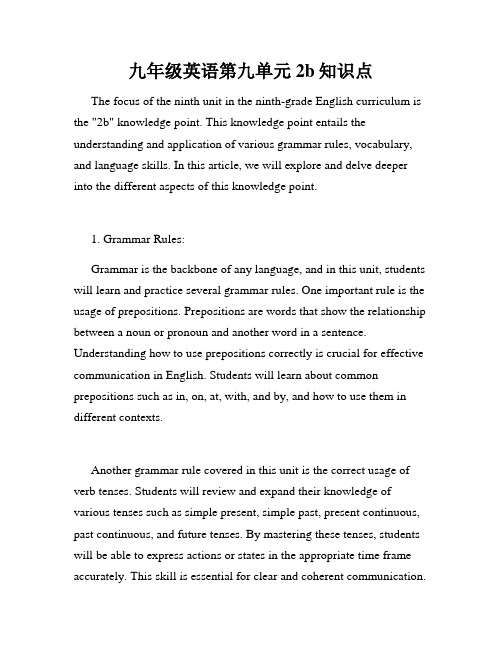
九年级英语第九单元2b知识点The focus of the ninth unit in the ninth-grade English curriculum is the "2b" knowledge point. This knowledge point entails the understanding and application of various grammar rules, vocabulary, and language skills. In this article, we will explore and delve deeper into the different aspects of this knowledge point.1. Grammar Rules:Grammar is the backbone of any language, and in this unit, students will learn and practice several grammar rules. One important rule is the usage of prepositions. Prepositions are words that show the relationship between a noun or pronoun and another word in a sentence. Understanding how to use prepositions correctly is crucial for effective communication in English. Students will learn about common prepositions such as in, on, at, with, and by, and how to use them in different contexts.Another grammar rule covered in this unit is the correct usage of verb tenses. Students will review and expand their knowledge of various tenses such as simple present, simple past, present continuous, past continuous, and future tenses. By mastering these tenses, students will be able to express actions or states in the appropriate time frame accurately. This skill is essential for clear and coherent communication.2. Vocabulary:Vocabulary acquisition is a fundamental aspect of language learning. In this unit, students will encounter and learn new words and phrases that expand their lexical repertoire. The focus will be on words related to daily routines, activities, and personal preferences. By incorporating these new words into their vocabulary, students will be able to express themselves more precisely and effectively in English.3. Language Skills:Apart from grammar and vocabulary, this unit also emphasizes the development of various language skills. One important skill is reading comprehension. Students will have the opportunity to read a variety of texts, including narratives, descriptions, and explanatory passages. These readings will not only enhance their understanding of the language but also improve their critical thinking and analysis skills.Another skill that will be honed in this unit is writing. Students will practice writing different types of texts, such as informal letters, emails, and short descriptive pieces. They will learn how to structure their writing, use appropriate vocabulary and grammar, and express their ideas clearly. Developing strong writing skills is crucial for academic success beyond the English classroom.Speaking and listening skills will also be addressed in this unit. Students will engage in various speaking activities, such as role plays, dialogues, and presentations. These activities will provide opportunities for students to practice their pronunciation, fluency, and ability to express themselves orally. Similarly, listening exercises will enhance their comprehension skills and help them develop an ear for the language.In conclusion, the "2b" knowledge point in the ninth-grade English curriculum covers various grammar rules, vocabulary, and language skills. Students will develop a firm understanding of prepositions, verb tenses, and expand their vocabulary. Additionally, they will enhance their reading, writing, speaking, and listening skills through engaging activities and exercises. By mastering these knowledge points, students will become more proficient and confident in their English language abilities.。
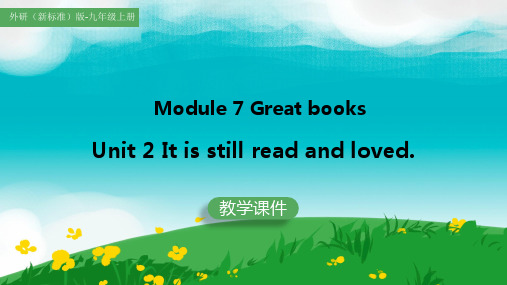
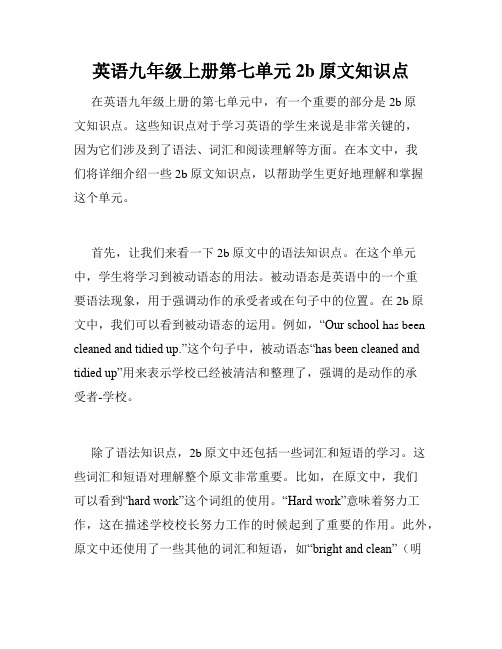
英语九年级上册第七单元2b原文知识点在英语九年级上册的第七单元中,有一个重要的部分是2b原文知识点。
这些知识点对于学习英语的学生来说是非常关键的,因为它们涉及到了语法、词汇和阅读理解等方面。
在本文中,我们将详细介绍一些2b原文知识点,以帮助学生更好地理解和掌握这个单元。
首先,让我们来看一下2b原文中的语法知识点。
在这个单元中,学生将学习到被动语态的用法。
被动语态是英语中的一个重要语法现象,用于强调动作的承受者或在句子中的位置。
在2b原文中,我们可以看到被动语态的运用。
例如,“Our school has been cleaned and tidied up.”这个句子中,被动语态“has been cleaned and tidied up”用来表示学校已经被清洁和整理了,强调的是动作的承受者-学校。
除了语法知识点,2b原文中还包括一些词汇和短语的学习。
这些词汇和短语对理解整个原文非常重要。
比如,在原文中,我们可以看到“hard work”这个词组的使用。
“Hard work”意味着努力工作,这在描述学校校长努力工作的时候起到了重要的作用。
此外,原文中还使用了一些其他的词汇和短语,如“bright and clean”(明亮而干净的),“sweep the floor”(扫地),这些词汇和短语的学习可以帮助学生扩展词汇量,提高阅读能力和写作能力。
在阅读理解方面,2b原文也提供了很多内容。
学生需要通过阅读理解来获取整个文章的意思和信息,并回答相关问题。
例如,在这个原文中,学生需要回答几个问题,如“Who cleans the windows?”, “What does the principal do in the morning?”, “What does the headteacher th ink of the students’ work?”等等。
通过阅读理解和回答这些问题,学生们可以更好地理解原文的意思,并提高自己的阅读理解能力。

初三英语2班Period 7 7.22英语9A Unit 2试卷一、听力:10%A、听下面5段对话。
每段对话后有一个小题,从所给的A、B、C三个选项中选出最佳答案,并将其标号填人题前括号内。
(听两遍,5分)1. A . A teacher B. A doctor C. A nurse2. A. The museum B. The park C. The cinema3. A. Oranges B. Pears C. Apples4. A. He’ve got a cold. B. He’ve got a fever C. He has a headache5. A. 6:10 B. 6:30 C. 6:25B、听短文,选择正确选项。
(听两遍,5分)6. They always left ______ at home when they went out.A. their dogB. their catC. their daughter7. How did they go to the cinema one evening?A. On foot.B. By bike.C. By car.8. The woman was very angry because ______.A. the dog was missing.B. her husband didn’t catch the robberC. she didn’t think the dog had looked after the house9. What happened to the robber according to the story?A. He was locked in the door.B. He was caught in the garden.C. He was bitten by the dog.10. From the story we can see that the dog is ______.A. clever and braveB. strong but carelessC. weak and foolish二.单项选择:15%1.I prefer buying her some presents _______________ her some money.A. to givingB. to giveC. givingD. than give2. ___________of the students has an English exercise book.A. NoneB. BothC. AllD. Every3. There __________ anybody in the room. The door is locked.A. mustn’t haveB.can’t haveC. mustn’t beD.can’t be4 Jack seems ___________ than you __________ ready for the exam.A. busy; to getB. much busier; gettingC. busier; to getD. more busier; getting** you have any difficulty _______________ spoken English?A to understandB to understanding C.understanding D understand**’s ___________ hard problem for the twins that _________ of them can work it out.A. so;neitherB. such a; noneC. so a; neitherD. such a; neither** told me he would tell us _______________.A. surprising somethingB.surprising anythingC. something surprisingD.anything surprising8. Could you tell me _____________?A. which room he livesB. which room he livedC. which room did he live inD. which room he lives in9. --The exam was very easy ,wasn’t it?--Yes,but I don’t think ___________ could pass it.A. somebodyB. anybodyC. nobodyD. everybody10. When I was a boy , I used to have many friends ______________.A. to playB. to play with themC. to play withD.play** Tony is crying harder and harder .Could you make him __________?A. stop to cryB. stop cryingC. to stop cryingD. to stop to be cry12. When you leave the office, make sure that all the lights _____________.A. turn onB. are turned onC. turn offD. are turned off** not join us in the game, Kitty?_________________,but I have to do my homework first.A. Let’s goB. I’d like toC. Yes, pleaseD. It’s a pleasure**’s the synonym of “need”?A. influenceB. realizeC. remindD. require** you go to Lucy’s birthday party this Sunday, Li Lei? ________I if you ___________.** do; go B. So will; go C.Neither do; will go D. So shall; will go三.词汇:10%1.Blue is my favourite colour because it___________ (创造) a feeling of ___________ (和谐).2.The colour red _____________ (代表) heat and strong feelings.3.I am glad that he has ____________(意识到) that he should spend more time on his studies.4.You must be careful in making a __________(决定).5.This picture ________________ (使想起) me of my childhood.6.Green can give you a lot of energy ,because it represents new life and ___________(成长)7.My teacher often (建议) me to do more reading.8.He was very _______________ (嫉妒的) of his friend’s good marks in the exam.9.There must be something wrong with him because he wasn’t acting _______________(正常地).四.用所给动词的适当形式填空:10%1.Rather than _____________ (go) to work by bus, I prefer ___________ (ride) a bike.2.The old man has difficulty _______________ (remember) all the names.3.He seemed _______________ (not know) the address of his house.4._______________ (have) a delicious breakfast can cheer me up.5.The famous professor preferred giving lectures to students to ____________(invite) to a meeting.6.The scientists _________________ (work) on this project have made great progress.7.My friend can't decide which pair of trousers____________(choose). So she asked me togo shopping with her.8.Be sure ___________ (close) the windows when you leave.9.The teacher advised the poor girl ______________ (carry) on her study.五.句型转换:10%1.Tim would rather go there on foot than take a bus. (同义句)Tim _________ _________ go there on foot _________ _________ take a bus.Tim _________ _________ there on foot __________ __________ a bus.2.It can cause me to remember my grandpa. (同义句)It can __________ me __________ my grandpa.3.He could hear nothing. (同义句)He ____________ hear ___________4.She was so weak that she couldn’t take care of the baby. (同义句)She was ____________ weak ___________ take care of the baby.5.There is nobody in the room,____________ _____________?(反义疑问句)6.All of them like basketball. (改为否定句)____________ of them _____________ basketball.7.Wearing red makes it easier for you to take action. (划线部分提问)____________ ____________ it easier for you to take action?六.完形填空(共10小题; 每小题1分,满分10分)阅读下面短文,从短文后各题所给的A、B、C、D四个选项中,选出可以填入空白处的最佳选项。

Unit 2 There are several fan clubs in China whichhave held birthday parties for Tintin.课型:读写课一.学习目标:pare the differences between older cartoons and recent cartoons.2. Master the restrictive attributive clause with who, which and that.3. Write the cartoons you like and say why and the history about it.二.课前朗读(朗读与本课有关的单词)三.学习过程1.导入:1) Review the dialogue(3) on Page 72.2) Show a picture about the cartoon 《Snoopy》and ask the students s omequestions about it. And lead them to this passage.2. 1) Listen to the tape about Cartoon heroes and find out① What country do they (Nemo, Shrek, the Monkey King, Tintin, Snoopy) comefrom?② Are they recent cartoons or old cartoons?2) Listen again and match A with B.A BNemo hugeShrek lovableThe Monkey King cuteSnoopy mess3. 1)Read this passage and answer the questions of No.5 on Page 752)Read again and translate the following phrases into Chinese or English.a. win the heart ofb. 制造混乱c. the whole series ofd. 翻译成e. Havoc in Heavenf. 违反规定g. common expressionh. 全世界3) Read again and find out all the restrictive attributive clause with who,which and that.4)小组内交流,找出并写下疑难问题,全班一块解决。